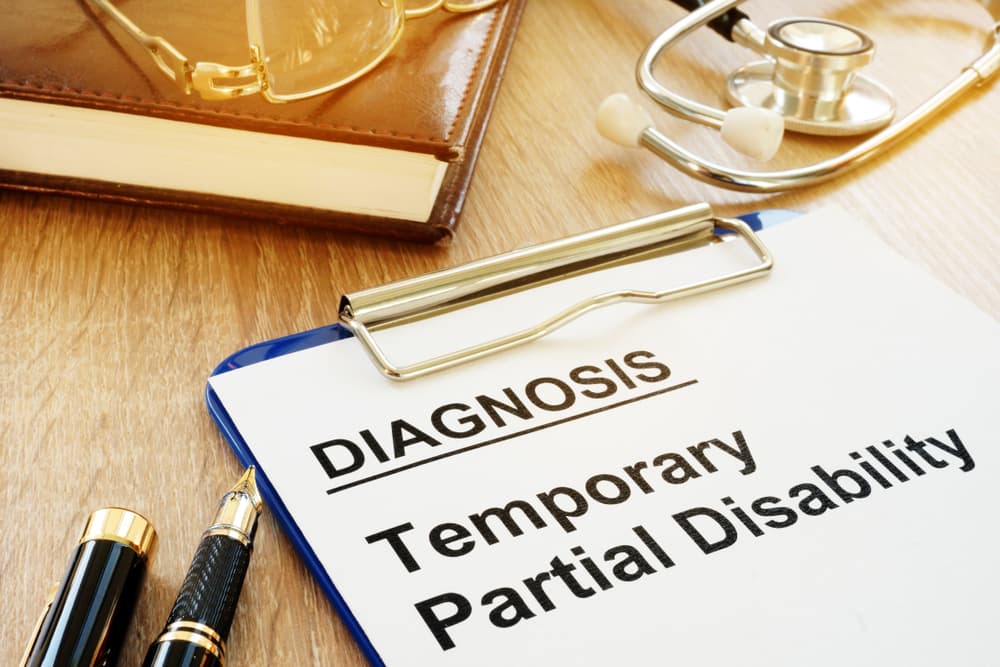A medical procedure can take you out of commission for an extended time. Even if your procedure was at an outpatient facility, what matters is what you can do after the surgery. You often have no choice but to take extended time off work. Not only will you need to recover from your procedure, but you may also have to undergo extensive rehabilitation. You may need weeks or months to return to your job. If you work in a physical occupation, you may need effective therapy or multiple procedures until you can work again. During this time, you might be grateful for temporary disability insurance coverage. You might expect to begin receiving benefits to replace your income, so you can cover your bills. However, many people receive benefit denials and other setbacks that prevent them from getting the coverage they need and expect. If you need temporary disability benefits while out of work following surgery, seek legal assistance to ensure you receive the payments you deserve. A short term disability attorney can review your policy and advise you of your eligibility for benefits. They can also assist with the entire claims process, including any appeals of denials if necessary. Do not stress about your benefits. A disability lawyer can help you.
Missing Time From Work Can Hurt You Financially
You might have serious financial concerns if you cannot earn money during or after surgical procedures. You will have financial contributions necessary for your medical care, including co-pays and deductibles. Not only are you concerned about your physical health, but you also must worry about your household finances. You may not have enough paid sick leave to cover the time you will need to miss from work, or your employer may not even offer the benefit at all. If you have short-term disability insurance, you will not need to go without pay when you have to miss extended time from work after your surgery. You will be eligible for disability benefits when you cannot work at your job due to your condition.Short-Term Disability Replaces Some of Your Earnings When You Cannot Work
Your policy will pay you a certain percentage of your earnings as long as you are entitled to benefits (usually between 40-100 percent of your earnings). The policy will also specify how long you can receive benefits. Usually, you will be paid benefits for 3-6 months. If you are still disabled at that point, you will need to apply for benefits under a long-term disability insurance policy or Social Security Disability. If you have enough time, contact the insurance company before the surgery. There are some cases where you have had emergency surgery, and you do not have the opportunity to contact the insurance company. While the insurance company may not approve your claim on the spot, you can at least discuss benefits and how to begin them.Can I Get Short-Term Disability from My Job?
You can receive short-term disability benefits through:- Your employer. Many companies provide coverage through a third-party administrator as part of your employee benefits package. Some states even require employers to pay for short-term coverage, the same as they are required to contribute toward health insurance.
- A private disability plan. If you do not receive disability coverage as part of your employee benefits or want an effective policy no matter how often you change jobs, you may purchase private disability insurance. You should buy this coverage if you believe you can develop something that the insurance company may consider a pre-existing condition.
Insurance Companies Will Not Pay Benefits for Pre-Existing Conditions
Whether you can get disability benefits after surgery depends, in part, on whether the medical condition receiving treatment is a pre-existing condition. Insurance companies do not give benefits for conditions that existed when your policy coverage started. For example, if you have had a disabling back condition for some time (before the policy began), the surgery to treat it will be considered part of a pre-existing condition. Insurance companies are quick to try to deny coverage based on a pre-existing condition. They can even decide to deny benefits for surgery related to pregnancy if you were pregnant when the policy began. The insurance company will look to shoehorn your condition into one of the explicit exclusions of the policy, taking advantage of broad and vague language to keep you from getting benefits. You must be ready with medical records and doctors' opinions that your surgery was not for a pre-existing condition.Insurance Companies Will Not Pay Benefits for Procedures That Are Not Medically Necessary
In addition, the insurance company will scrutinize why you had the surgery. The requirement for disability benefits is that the surgery must have been medically necessary. If you have undergone a procedure such as plastic surgery, it will not be considered medically necessary. However, if your disability is because you had open-heart surgery, it is medically necessary. Here are some other medically necessary procedures (assuming that the condition was not pre-existing):- Hip and knee replacement
- Back surgeries
- Cancer surgery
- Removal of an organ or a transplant
- A pregnancy-related surgery
- Cosmetic surgeries
- Breast augmentation or reduction
- Gastric bypass (unless it is medically necessary)
The Insurance Company May Still Think that You Can Work
The insurance company may deny your claim because they claim that you do not meet the policy's definition of disability. Each policy contains its definition of the term. While the actual language of each policy may differ (and the precise words do make a big difference), the general spirit of each clause is the same; for you to qualify for short-term disability benefits, you have the burden of proof to show that you cannot work at your current job. The main argument is that the insurance company believes you can work at your job despite recovering from surgery. The insurance company will review your medical records and try to downplay the severity of your condition. Their "independent doctor" will determine that your surgery does not prevent you from working. Even though you may be off your feet for a while and require follow-up care, the insurance company will expect you to work every day, perhaps even at a job requiring physical labor. They may not accept your own doctor's opinion about your condition.How You Can Prove Your Temporary Disability
To show that you have a disability that prevents you from working, you will need:- Medical records that show your condition
- Statements from your treating doctor that detail your condition and any limitations that you may have
- Your own personal narrative that details what you are going through after your surgery and why you are unable to work
How to Fight a Denial of Your Benefits
If your coverage is employer-sponsored, ERISA describes the procedures you must follow to appeal a claim denial. You must appeal first through the insurance company. They will review their denial of your appeal. Most likely, the insurance company will reach the same result it reached in the first place and uphold its denial. Then, you can take your case to federal court, relying on the same appeal record that the insurance company used. The judge will review that record to determine whether the insurance company made an error in denying your claim. If you privately purchased a disability policy, you can file a lawsuit against the insurance company directly in state court. The insurance company is obligated to provide benefits under the contract terms. If you meet the definition of disability, and the insurance company does not begin to pay benefits, you can sue them for breach of contract. You can also file other claims against the insurance company, including a possible bad faith claim, when the circumstances allow. The insurance company will watch you closely to determine when they believe you can return to work. They may even be conducting surveillance, trying to catch you doing something that will give them a reason to cut your benefits. They want to close out your claim and stop paying you benefits immediately. However, you might still have disabilities that prevent you from returning to the job that you performed before your surgery. The insurance company may prematurely cut off benefits when you cannot work. If your insurer suddenly stops your benefits, your lawyer can follow the same process as in an appeal.Your Temporary Disability Might Become Long-Term
In addition, what begins as temporary disability benefits may turn into long-term benefits if you cannot recover sufficiently to go back to work. Unfortunately, not every surgery succeeds. You will need the doctor to reevaluate you and conclude that you cannot work for the long term. You may disagree with the examining doctor's conclusions that you can return to work. As a claimant, you have the legal right to a medical opinion from your treating doctor instead of the "independent doctor" the insurance company selects for you.Contact a Disability Insurance Attorney for Help




